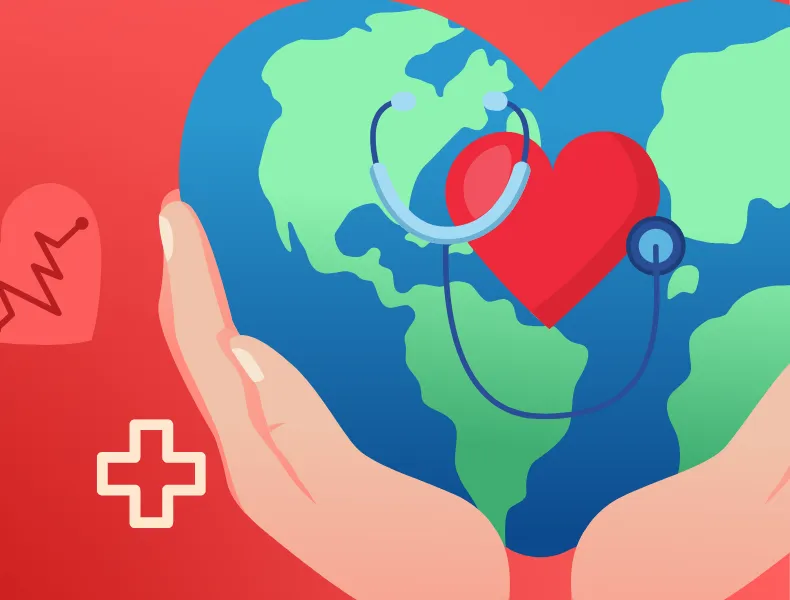What is the thyroid gland?
The thyroid gland is part of the endocrine system, and it plays a crucial role in your metabolism and creating new proteins. It produces thyroid hormones which influence nearly every organ in the body. That includes regulation of skin integrity, menstrual cycles, calcium levels, nervous system, heart, and cholesterol levels. It also affects brain development, body temperature, respiration, metabolism, and fat production.
Fast facts about thyroid disease:
Facts about thyroid disease from the American Thyroid Association:
- As many as 60% of people with thyroid disease are unaware they have the condition.
- Women are five to eight times more likely than men to have a thyroid issue.
- About 20 million Americans have some form of thyroid disease.
- More than 12% of the population in the U.S. will develop thyroid disease during their lifetime.
- Thyroid disorders affect one in every eight women.
- Most thyroid disease responds to treatment; a small number can be aggressive.
- The cause of thyroid disease is mostly unknown.
- Pregnant women with undiagnosed or inadequately treated hypothyroidism (underactive thyroid) have an increased risk of miscarriage, preterm delivery, and severe developmental problems in their children.
- Most thyroid diseases are life-long conditions, but can be managed with medical treatment.
- Patients with undiagnosed thyroid disease are at risk for certain serious conditions, such as cardiovascular diseases, osteoporosis, and infertility.
When do thyroid problems occur?
Thyroid problems begin to occur when your thyroid gland produces either too much or not enough thyroid hormone. Underactive thyroid is referred to as hypothyroidism; overactive thyroid is referred to as hyperthyroidism.
What are examples of thyroid diseases?
Examples of diseases related to thyroid glands include hyperthyroidism, hypothyroidism, Hashimoto's disease, Graves' disease, goiter, and thyroid cancer.
What are hyperthyroidism and hypothyroidism?
Hyperthyroidism causes an increase in thyroid hormone production. In hyperthyroidism, the thyroid gland enlarges due to the higher production of thyroid hormones. Its symptoms include insomnia, fast heartbeat, anxiety, increased appetite, weight loss, and diarrhea. The prevalence of hyperthyroidism is higher in those under 50. Hypothyroidism is marked by a slower-than-normal rate of thyroid function. People over 60 are more likely to experience it, and as people become older, their likelihood of experiencing it rises. Because its symptoms frequently coincide with those of other aging-related illnesses, hypothyroidism is frequently underdiagnosed in elderly adults.
How do doctors diagnose thyroid disease?
Self-examination of your neck for lumps is the first step in determining whether you have undetected thyroid disease. Blood testing to measure the level of thyroid hormone, however, is the primary diagnostic procedure for thyroid illness. Your doctor may also do a thyroid-stimulating hormone test to confirm whether you have a thyroid issue.
How can I perform a self-check?
Hold a hand mirror up to your neck so you can see the base of your neck above the collarbone. Then, follow these steps:
- tilt your head back and drink some water
- after swallowing the water, check your neck for any bulges
- follow the procedure a few times more to make sure you don't notice any swelling
- consult your doctor if you find a lump, nodule, or swollen gland
What are the causes of thyroid disease?
Thyroid disease can be a result of autoimmune disease, the effect of certain medications, thyroid surgery, or radiation therapy.
Who can develop thyroid disease?
Thyroid disease can affect anyone, but women who are 60 years or older are at higher risk.
What is the treatment for thyroid disease?
Medications, iodine, or hormones can be used to treat both hypothyroidism and hyperthyroidism. Other thyroid issues can be treated with therapy or surgery.
What are examples of medications for the treatment of thyroid disease?
Examples of medications prescribed for thyroid disease include levothyroxine (Synthroid), liothyronine (Triostat), methimazole (Tapazole), propylthiouracil (PTU), propranolol (Inderal), and sorafenib (Nexavar)
How can I participate in Thyroid Awareness Month?
By encouraging friends and family to get screened for thyroid disease and raising awareness on social media, you can really make an impact during Thyroid Awareness Month.
Also, because consistent treatment is crucial for individuals with thyroid disease, you can show people how to more easily afford their medications with an RxLess discount coupon. A RxLess discount coupon is a cost-saving card that gives you prescription savings up to 88% less than the usual retail cost. The card is free and accepted by most pharmacies, including CVS, Rite Aid, and Walgreens.

















